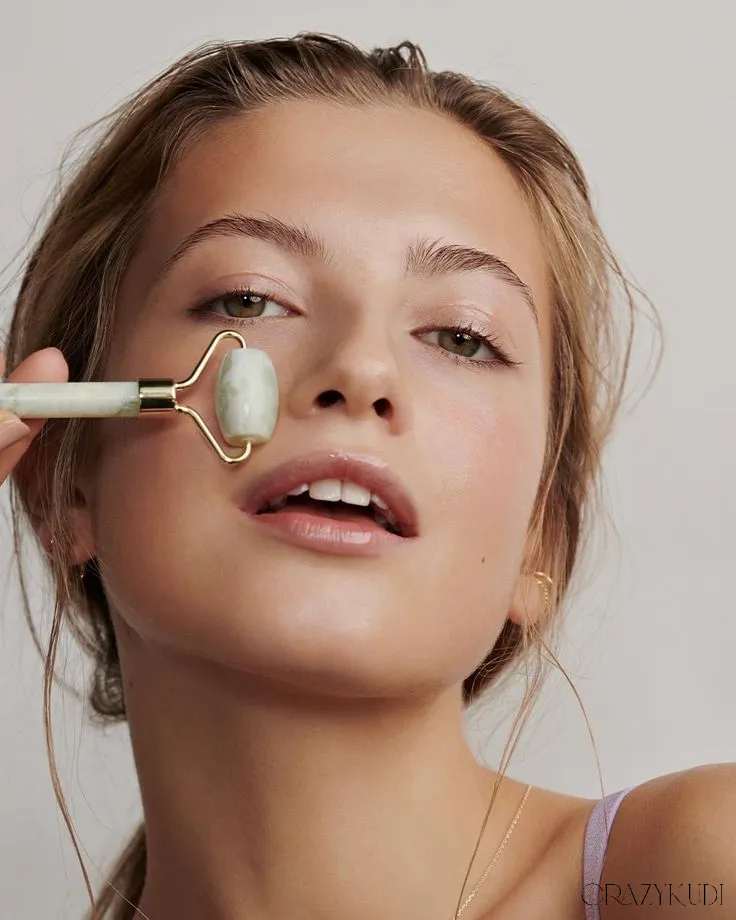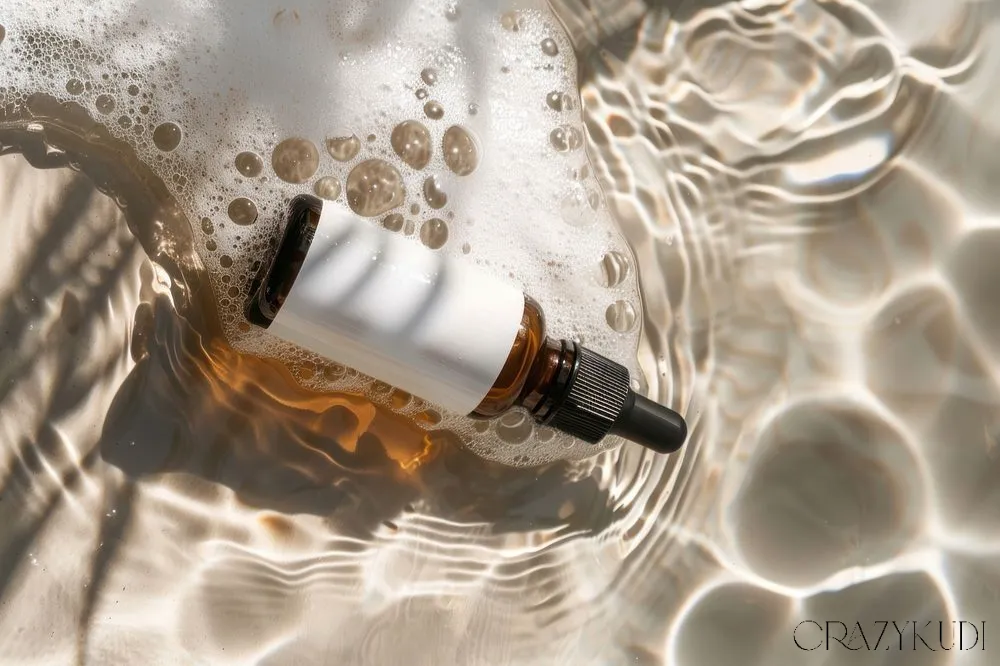As the day winds down, it's time to give your skin the attention it deserves. We all know that morning skincare is essential for protecting our skin, but night-time skincare plays an equally important role in maintaining youthful, radiant skin. When you go to bed, your skin is in repair mode, making this the best time to focus on rejuvenation and hydration.
So, let’s “get un-ready” together. In this blog, I’ll walk you through the perfect night-time skincare routine to help you wake up with glowing, healthy skin. Trust me—your skin will thank you!
Why Night-Time Skincare is Important
The night is when your skin regenerates and repairs itself, making it the perfect opportunity to nourish and treat your skin. While you sleep, your skin is more receptive to ingredients like moisturizers, serums, and active treatments, which is why a solid night-time routine can make a world of difference.
Benefits of Night-Time Skincare:
- Cell turnover: Skin naturally repairs and regenerates at night, so it’s the best time to support this process.
- Hydration: Hydrating ingredients help your skin lock in moisture, keeping it smooth and supple.
- Anti-aging: Night is the ideal time for treatments that fight the signs of aging like fine lines and wrinkles.
Step 1: Cleanse Your Skin
The first step in any great skincare routine is always cleansing. After a long day, your skin has been exposed to dirt, makeup, pollutants, and sweat. All of these impurities need to be washed away before you apply any skincare treatments.
A gentle, non-stripping cleanser is ideal for the evening. Look for a cleanser with a hydrating base that will clean your skin without leaving it feeling tight or dry.
Why It’s Important:
- Removes makeup and dirt: Cleansing ensures that your skin is free from environmental impurities and makeup residue.
- Preps your skin for treatments: A clean canvas allows active ingredients to penetrate deeply.
Tip:
If you wear makeup, consider using an oil-based cleanser or micellar water first to remove your makeup before following up with a regular face cleanser.
Also read: Charcoal Masks: A Must-Have for Your Skincare Routine This Summer
Step 2: Exfoliate (2-3 Times a Week)
Exfoliation is key to maintaining smooth, bright skin. Over time, dead skin cells accumulate on the surface of your skin, leading to a dull complexion and clogged pores. Use a gentle exfoliator with either AHAs (Alpha Hydroxy Acids) or BHAs (Beta Hydroxy Acids) to slough off dead skin and reveal a radiant glow.
However, over-exfoliating can cause irritation, so only exfoliate 2 to 3 times a week.
Why It’s Important:
- Removes dead skin cells: Exfoliating ensures that your skin can renew itself and absorb skincare products more effectively.
- Brightens complexion: Regular exfoliation reveals brighter, more even-toned skin.
Tip:
If you have sensitive skin, opt for a gentle exfoliant with lactic acid or gentle scrubs rather than harsh physical exfoliators.

Step 3: Toner (Optional but Effective)
While toners aren’t a necessity, they can be a valuable part of your night-time skincare routine. A good toner can balance your skin's pH levels, hydrate, and remove any remaining impurities that your cleanser didn’t fully remove.
Look for toners that are alcohol-free and contain soothing ingredients like witch hazel, rose water, or aloe vera.
Why It’s Important:
- Balances skin’s pH: A toner restores your skin’s natural pH balance after cleansing.
- Hydrates and refreshes: It can add an extra layer of hydration and prep your skin for serums and moisturizers.
Tip:
Use a toner with hyaluronic acid if you need an extra boost of hydration.
Step 4: Treat Your Skin with Active Serums
This is where the magic happens. Serums are packed with potent active ingredients that can treat specific skin concerns, such as dark spots, fine lines, acne, or uneven skin tone.
Depending on your skin needs, you can choose a serum with ingredients like:
- Vitamin C: To brighten and fight pigmentation.
- Retinol: For anti-aging and smoothing fine lines.
- Niacinamide: To reduce redness and control oil production.
Why It’s Important:
- Targeted treatment: Serums are packed with concentrated ingredients that directly target your skin concerns.
- Enhanced absorption: Night-time is the perfect opportunity for your skin to absorb the full benefits of these active ingredients.
Tip:
If you're using retinol, make sure to apply it only at night and gradually build up to avoid irritation.
Also read: Bring Back Your Youthful Skin with These Simple and Effective Tips
Step 5: Moisturize
After applying your serum, the next step is to lock in all the goodness with a moisturizer. At night, you want to ensure your skin stays hydrated and rejuvenated. Choose a moisturizer that suits your skin type—whether it's lightweight for oily skin or richer for dry skin.
Moisturizers with ingredients like ceramides, squalane, and hyaluronic acid are fantastic for sealing in moisture and creating a barrier that helps your skin retain hydration.
Why It’s Important:
- Seals in hydration: Moisturizer helps to trap moisture in your skin, preventing it from evaporating overnight.
- Supports skin repair: The right moisturizer supports the skin’s natural repair process.
Tip:
Use a heavier moisturizer during the winter months to combat dryness, and switch to a lighter formula during the warmer months.

Step 6: Eye Cream (Optional)
The skin around your eyes is delicate, and it often shows signs of aging and fatigue first. If you have concerns like puffiness, dark circles, or fine lines, consider adding an eye cream to your routine.
Look for eye creams with ingredients like caffeine (for puffiness), retinol (for fine lines), or vitamin K (for dark circles).
Why It’s Important:
- Targeted care: The skin around your eyes is thinner, so eye creams can provide more targeted treatments without irritating the area.
- Reduces puffiness: Ingredients like caffeine help reduce swelling and inflammation around the eyes.
Step 7: Face Oil (Optional for Extra Hydration)
For extra hydration and glow, finish your routine with a face oil. Face oils are packed with nourishing ingredients like argan oil, rosehip oil, and jojoba oil, which help to deeply hydrate and restore the skin’s natural barrier.
Why It’s Important:
- Deep hydration: Oils seal in moisture and provide long-lasting hydration throughout the night.
- Nourishes skin: Essential fatty acids in oils nourish and repair the skin.
Tip:
If you have oily skin, choose a non-comedogenic oil, such as jojoba oil, that won’t clog pores.
Also read: Face Mask Sheets: The Secret to Youthful, Dewy Skin
Step 8: Don’t Forget Your Lips and Neck
The lips and neck area often get neglected in skincare routines. Use a lip balm to hydrate your lips and an anti-aging neck cream to help keep this area smooth and firm. The skin on the neck and chest is thinner and more prone to wrinkles, so it’s important to treat it with care.
Why It’s Important:
- Lips: Keep them hydrated with a nourishing lip balm.
- Neck: A targeted neck cream can reduce signs of aging in this often-overlooked area.
Final Thoughts: Wake Up with Glowing Skin
A well-rounded night-time skincare routine is the key to glowing, healthy skin. By properly cleansing, exfoliating, treating, and moisturizing your skin before bed, you’ll wake up with a rejuvenated, refreshed complexion ready to take on the day. So, take the time to get un-ready, and let your skin enjoy the benefits of beauty sleep.

